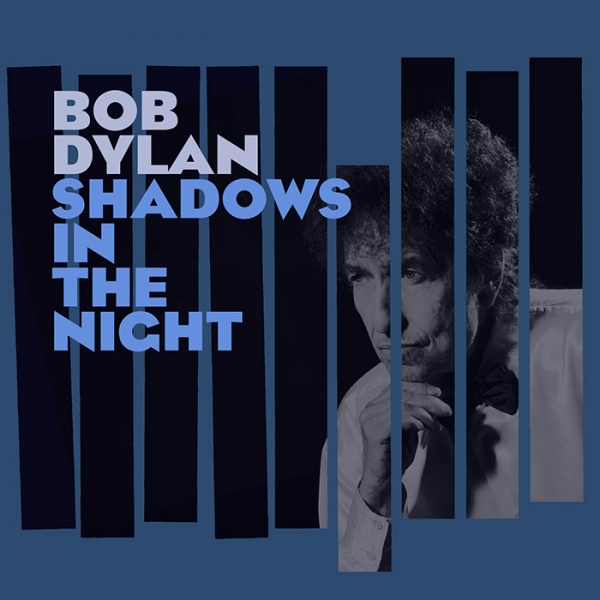Concert Review: Bob Dylan on Tour — No Nostalgia Allowed
The set proved that Bob Dylan remains, among many other things, one of music’s great contrarians.

By Brett Milano
Later this year, Bob Dylan will be performing at that absurd gathering of old rock stars slated to happen in Indio, California. And when the crowd comes in with their thousand-dollar tickets, we can only hope that he gives them a set as perverse — and as classically Dylanesque — as the one he played at the Blue Hills Pavilion this week. Anyone who came in to catch a nice nostalgia buzz would’ve gotten up and left — in fact, a few people did — because this was an anti-nostalgia show. Packed with recent material, a couple radical rearrangements and a stack of Frank Sinatra covers, the set proved that Dylan remains, among many other things, one of music’s great contrarians.
The Sinatra songs (eight of them) came from Dylan’s last two albums, Shadows in the Night and Fallen Angels, both apparently recorded at the same time. It’s anyone’s guess why he’s now embraced this kind of music (though he first recorded standards back on 1970’s controversial Self Portrait), but it’s clear that they’ve engaged him as a vocalist. No, Dylan’s voice will never be as flexible as it once was, and he’ll never be a conventional crooner. But his current, craggy voice is perfect for the world-weary sentiments of these songs, and he personalizes them in the same way Willie Nelson does (“Full Moon & Empty Arms” in fact sported some Nelson-like cantina ambiance, with steel guitar and mandolin). When Dylan closed the encore with a somber, autumnal take on Sinatra’s “Stay With Me,” you didn’t have to ask whether he had anything invested in these songs.
And the Sinatra songs proved a good counterpoint to the jagged sentiments of Dylan’s own latter-day songs. With only three exceptions, the entire show came from his releases since 2000. “Things Have Changed” made a fitting opener, both because it was the most familiar (written for the movie Wonder Boys, it won the Oscar in ’01), and because it seems to sum up Dylan’s mindset nowadays, casting aside the “voice of a generation” mantle with a lot of misanthropic humor (“I used to care, but things have changed” — Any questions?). The songs from his latest original album Tempest (he played five) were no less toothsome: A snarling blues-rocker, “Pay in Blood” was full of vengeance and casual violence, and it’s also hilarious (“I pay in blood, but not my own,” goes the chorus). And “Spirit on the Water” (from the 2006 album Modern Times) — like many recent Dylan songs, a rambling blues with free-associative lyrics — begins as a romantic meditation, before the singer casually admits “I can’t go to paradise no more, I killed a man back there.”
The set was different from recent Dylan tours in another way: he’s playing the same setlist every night, giving the band (which includes Texas guitar slinger Charlie Sexton and ex-Bostonian guitarist Stuart Kimball) time to work out airtight arrangements of everything — no more of those free-form jams on ‘60s chestnuts. Dylan no longer plays guitar (apparently due to carpal-tunnel issues), but has become a more than decent keyboardist, and did a few trademark blasts on harmonica. Fans may gripe that there was no “Like a Rolling Stone,” “Maggie’s Farm” or “Knocking on Heaven’s Door” — and again, quite a few did — but he’s played those hundreds of times since the so-called NeverEnding Tour was launched in 1988. With the possible exception in Neil Young, it’s doubtful that the rest of that Indio crew will have so much new material worth paying attention to.
One of the night’s three oldies, “Blowin’ In the Wind” (the other two were “Tangled Up in Blue” and “She Belongs to Me”) turned up as the first encore. No telling whether Dylan had just heard the reports from Nice — probably not, since the song’s been a regular encore this year — but there was a sense that he was playing this one because it needed to be played. He took the song at a funereal pace, and lingered over the most telling lines (specifically, the “how many deaths?” line). Proof enough that the “voice of a generation” mantle still fits whenever he feels like slipping it back on.
Brett Milano has been covering music in Boston for decades, and is the author of Vinyl Junkies: Adventures in Record Collecting (St. Martins, 2001) and The Sound of Our Town: A History of Boston Rock & Roll (Commonwealth Editions, 2007). He recently returned from New Orleans where he was editor of the music and culture magazine OffBeat. His latest book is Don’t All Thank Me At Once (125 Records), a biography of the unsung pop genius Scott Miller, who led the bands Game Theory and The Loud Family.
Tagged: Blue Hills Pavilion, Bob-Dylan, Brett Milano

GREAT review brett … i am sorry i missed the concert … but so delighted to read your take on it …